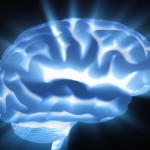 Many studies have shown that obesity is linked with serious health conditions and diseases. In addition to the ones most usually noted – diabetes, high blood pressure, and sleep apnea – obesity may hurt the brain itself. However, it’s possible that exercise may help counteract the negative brain effects, according to a new study conducted with mice. It’s been established that obesity can alter thought and reasoning in animals. For example, an earlier study showed that obese animals have poor memory and learning skills in comparison with leaner animals. However, it hasn’t been clear how excess weight affects the brain.
Many studies have shown that obesity is linked with serious health conditions and diseases. In addition to the ones most usually noted – diabetes, high blood pressure, and sleep apnea – obesity may hurt the brain itself. However, it’s possible that exercise may help counteract the negative brain effects, according to a new study conducted with mice. It’s been established that obesity can alter thought and reasoning in animals. For example, an earlier study showed that obese animals have poor memory and learning skills in comparison with leaner animals. However, it hasn’t been clear how excess weight affects the brain.
We know that fat cells release substances into the bloodstream that flow to other parts of the body, including the heart and muscles, creating inflammation and leading to health problems. The brain, however, doesn’t have fat cells and sits behind a protective blood-barrier. Many scientists thought that this barrier prevents undesirable substances, such as those released by fat cells, from entering the brain. But recent studies have shown that obesity actually weakens that barrier, leaving it leaky and permeable. Substances released by fat cells can get past the barrier and into the brain in obese animals.
In the new study, researchers found that obese mice had a large amount of a substance called interleukin 1 in their blood. It is created by fat cells and known to cause inflammation. They found interleukin 1 was able to get through the brain’s blood-barrier and enter the hippocampus, a part of the brain with important functions related to learning and memory. Inflammation existed in other areas of the brain, as well. Their findings were interesting: after they surgically removed abdominal fat from the mice, levels of interleukin 1 decreased sharply, and cognitive function improved.
While intriguing, it is important to remember that these mice findings have little direct practical value for people. The scientists said that even the most extensive liposuction procedure on a person would remove far less fat than had been removed from the mice. So instead, the researchers studied how exercise might counteract the effects of fat. They found that mice that were put on an exercise regimen did much better on cognitive tests than the sedentary mice, while weighing about the same. The active mice had shed fat from their abdomens and replaced it with lean muscle. Tissue from their hippocampi now showed little evidence of inflammation.
While it’s certainly a possibility that human brains may respond differently than that of mice, the overall findings are encouraging and should fuel motivation to exercise—especially if you are overweight. Bariatric surgery patients may find the same benefit since they tend to lose significantly more weight, and more fat, than other individuals.
“The information in this article is interesting and thought provoking”, said Dr. Gregory Schroder, expert weight loss surgeon in Richmond, VA. “Given all the research and evidence we have that obesity affects virtually every other end organ in our bodies, I am not surprised in the least that obesity may negatively affect our brains. We may just be seeing the tip of the ice burg on this one, and I look forward to new research looking at this aspect of obesity.”
Related Reading: Exercise and the Brain






Nutrition & Lifestyle